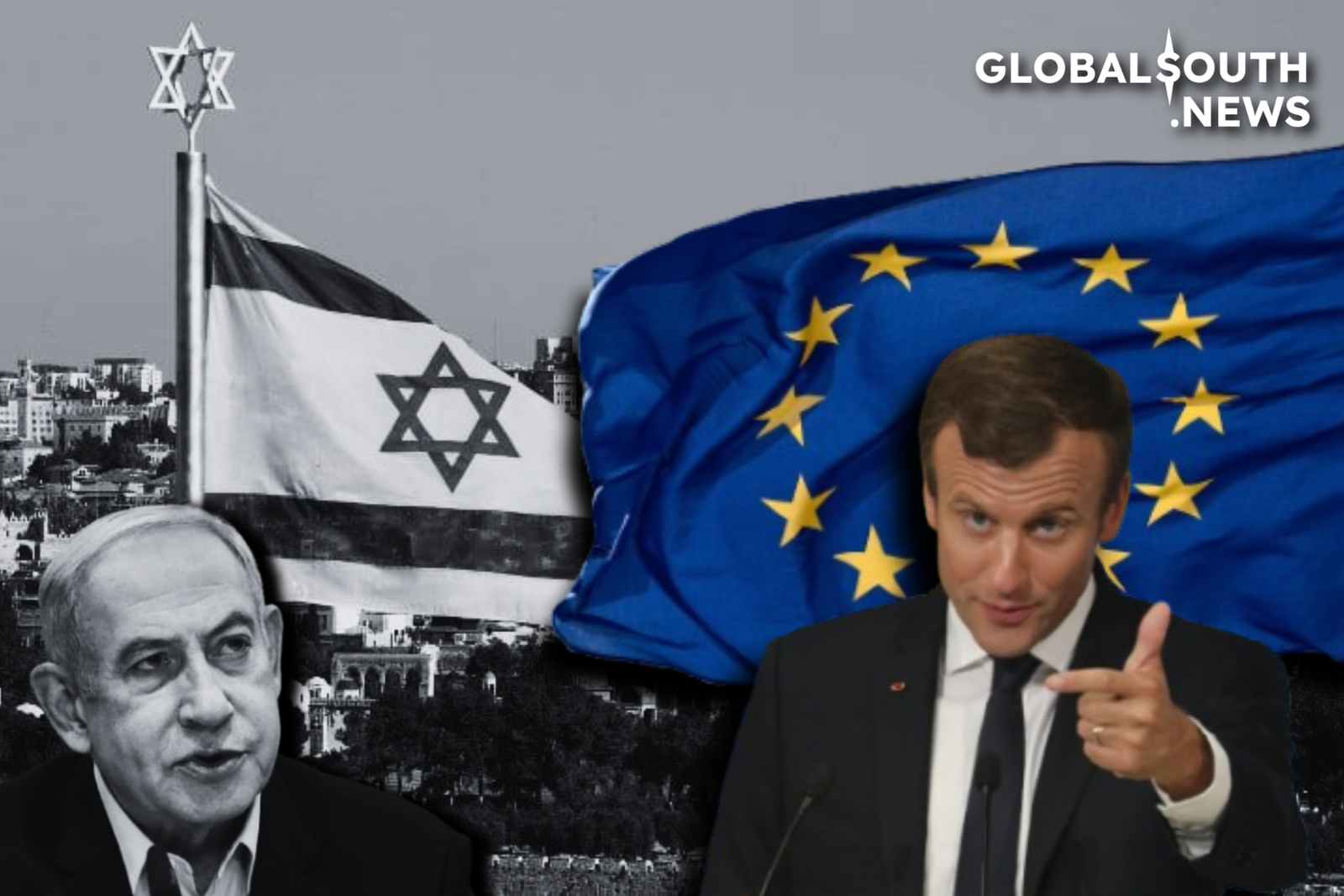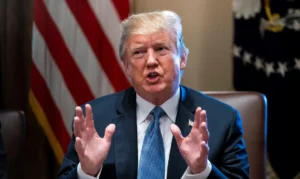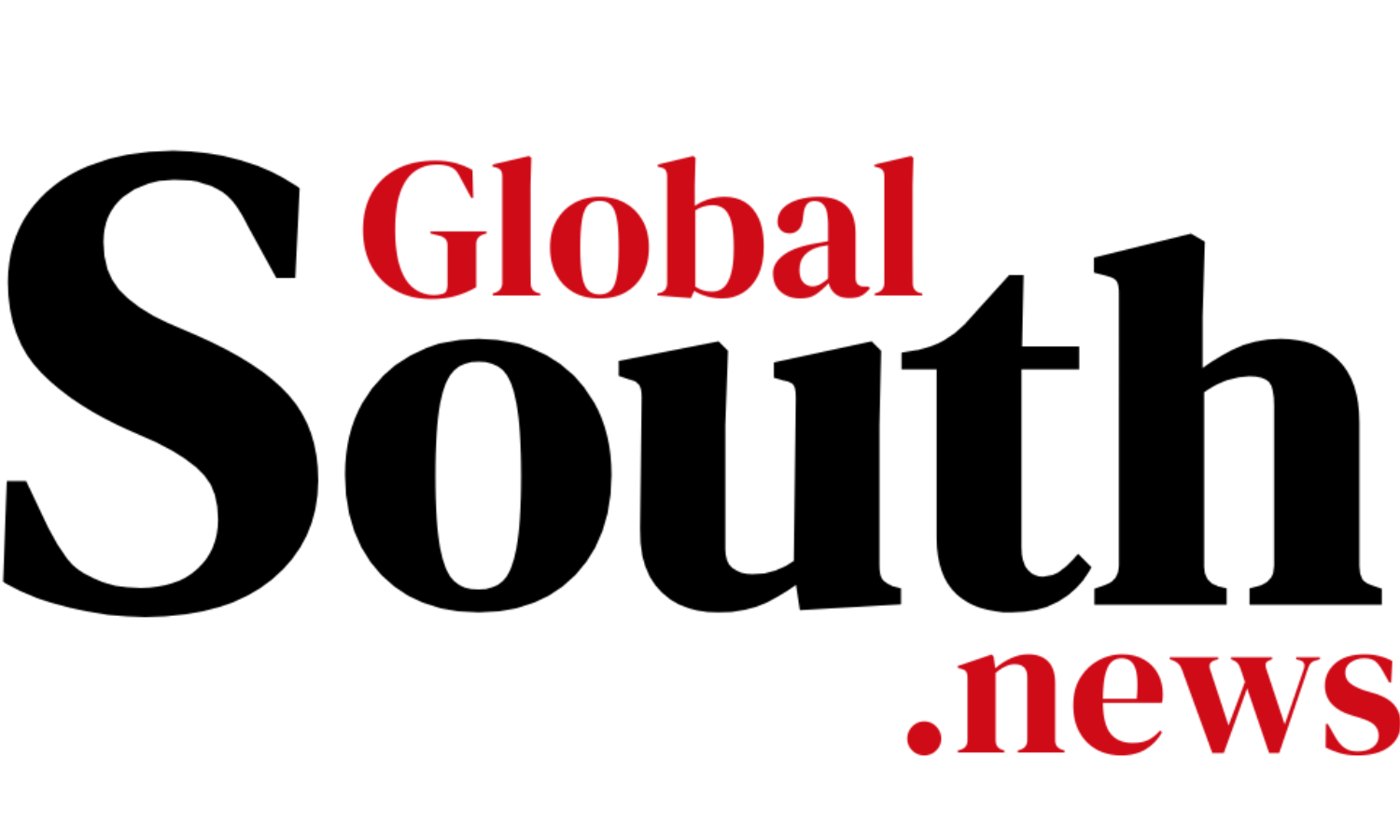
In a global landscape marked by growing concern over the Israel-Palestine conflict—particularly amid intensified hostilities in Gaza—French President Emmanuel Macron has signaled a potential shift in his country’s policy. By considering recognition of a Palestinian State, France openly challenges the conduct of Benjamin Netanyahu’s government, introducing a new element into the Middle East’s complex geopolitical equation. This declaration comes at a time of mounting international pressure for a ceasefire and a lasting solution to the conflict, raising crucial questions about the region’s future and Europe’s role in the process. This article analyzes the implications of this potential shift in France’s stance and its impact on the international stage.
France’s Historical Position and Strategic Shift
A traditional defender of the two-state solution, France has engaged in decades of diplomatic initiatives without ever taking the decisive step of unilateral recognition. Now, Macron declares openly: “We must move toward recognition. I will do this because, at some point, it will be the right thing to do.” This pivot is driven by three interconnected factors:
- The humanitarian catastrophe in Gaza, with over 50,000 Palestinian deaths recorded, triggering global outrage and pressure on Western leaders;
- The accelerated erosion of the two-state solution, as Israeli settlement expansion in the West Bank undermines Palestinian territorial viability;
- France’s geopolitical ambition to lead an alternative international coalition, evidenced by its co-hosting of the New York Conference (June 17–20) with Saudi Arabia, aimed at establishing parameters for a Palestinian State.
The shift reflects a sober assessment in Paris: after seven months of war, the window for a negotiated solution is closing. As Macron’s advisor Anne-Claire Legendre stated: “Faced with facts on the ground, the prospect of a Palestinian state must be maintained. Irreversible and concrete measures are necessary.”
Geopolitical Impact: Reshaping Alliances and Threats
French recognition would trigger cascading effects across the international chessboard:
✦ In the West:
- European domino effect: Norway, Slovenia, and Ireland have signaled support, but Germany and the UK remain cautious. As Norwegian Foreign Minister Espen Barth Eide noted: “If France moves, several countries will follow.” Portugal stated it is in “permanent assessment” of the issue, revealing fractures within the EU.
- Pressure on the U.S.: The move would isolate Washington, Netanyahu’s last major Western ally rejecting recognition.
✦ In the Arab World:
- Macron seeks reciprocity: “Those who advocate for Palestine must recognize Israel in turn.” Saudi Arabia, co-host of the June conference, is central to this strategy—though Riyadh shows no signs of normalizing relations without Israeli concessions in the West Bank.
✦ Israel’s Responses:
- Annexation threats: Israeli Minister Ron Dermer warned that if France and the UK recognize Palestine, Israel will annex parts of Area C in the West Bank and legalize unauthorized settlements.
- Diplomatic retaliation: Sources reveal Israel threatened reduced intelligence sharing and boycotts of French regional initiatives.
Gaza as Catalyst: The Moral Imperative
Israel’s offensive in Gaza has transformed the Palestinian question into a global humanitarian imperative. The bombing of a shelter-school on May 26 (56 killed) exemplifies the escalation forcing Western leaders to rethink positions. For Macron, this shift reflects not just political calculus but a response to “the international community’s inaction in the face of humanitarian tragedy,” as Brazil denounced.
Yet France’s strategy faces criticism:
- Symbolism vs. substance: Diplomats warn recognition will be “premature and ineffective” without sanctions on settlements or real pressure for withdrawal.
- Palestinian fragmentation: As Rabea Eghbariah (Harvard) notes, “legal debates obscure the totality of Palestinian status,” treating Gaza, the West Bank, and refugees as disconnected issues.
Structural Obstacles: Why the Path Will Be Arduous
France’s initiative confronts four entrenched barriers:
✦ Western Division:
The EU remains fractured, with one European diplomat cautioning: “This recognition would not be helpful now.” The U.S. and Germany resist, fearing destabilization of Netanyahu and empowerment of Hamas.
✦ Legal Traps:
Israel manipulates legal categories to justify violence. As Noura Erakat (Rutgers) explains:
- Redefining Gaza as a “hostile entity” (not occupied);
- “Diminished civilian” doctrine allowing targeting of Palestinians suspected of “continuous combat role.”
✦ Domestic Factors:
- In Israel: Recognition would fuel the far-right’s “world against us” narrative, per Tamir Hayman (INSS).
- In France: Europe’s largest Jewish and Muslim communities polarize domestic debate.
✦ The Existential Question:
As seen in the Oslo Accords (1993–2000), Israelis and Palestinians regressed to “1940s-era existential struggle” when talks failed. Unilateral recognition doesn’t resolve core disputes: 1967 borders, Jerusalem’s status, right of return.
Conclusion: An Inflection Point in the Pursuit of Peace?
France’s signaling represents the most serious Western challenge to the Israeli status quo in decades. By linking Palestinian recognition to Arab normalization with Israel, Macron aims to forge a new diplomatic equilibrium. Yet risks loom: Israeli annexations in the West Bank, Netanyahu’s deepening isolation, and potential rupture of fragile Western consensus.
Success hinges on Paris converting symbolism into practical leverage. As experts suggest, recognition will only matter if paired with settlement sanctions and Gaza reconstruction. June’s New York Conference will be the decisive test: if it secures mutual Arab-Israeli recognition commitments, Macron could redraw the Middle East’s political map. If it fails, it will confirm diplomacy’s crisis in confronting entrenched colonial realities.
As the two-state solution withers, France bets that only bold gestures can prevent its definitive collapse. As one French official summarized: “If there is a moment in history to recognize a Palestinian state—even symbolically—I’d say that moment has likely arrived.” The world watches to see if this conviction will inspire others to follow.
Sources: Le Monde (France), Haaretz (Israel), Al Jazeera (Qatar), Financial Times (UK), Público (Portugal), ANBA (Brazil-Arab News Agency), official statements.








